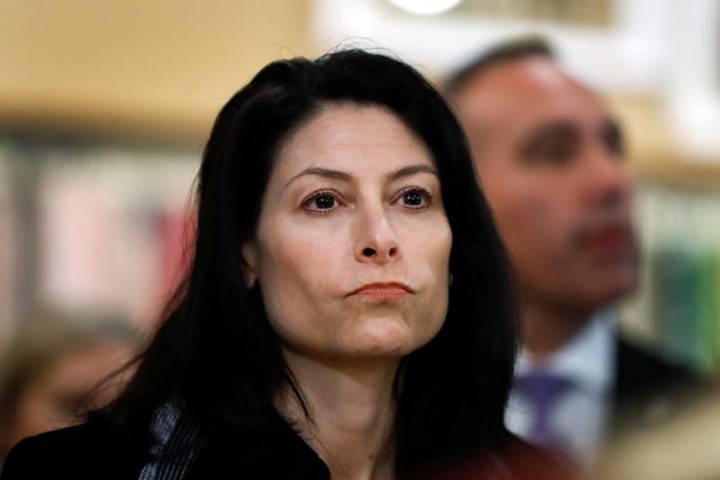WASHINGTON — Michigan’s chief law enforcement officer isn’t quite ready to give up on getting the dispute over the cross-border Line 5 pipeline remanded back to state court.
Attorney General Dana Nessel, whose strategy hinges on getting Gov. Gretchen Whitmer’s bid to shut down the Enbridge-owned pipeline heard at the state level, wants to appeal last month’s decision to keep it in federal court.
Michigan “believes that there is room for reasonable jurists to disagree with the court’s holdings,” Nessel writes in a brief filed last week in support of her motion.
“Immediate interlocutory appeal is appropriate to advance the ultimate termination of the litigation.”
Those, according to Nessel’s argument, are the primary conditions necessary for the court to certify an appeal order while the underlying case is still ongoing — a little-used procedure known as an interlocutory appeal.
At issue for Nessel is last month’s decision by Michigan District Court Janet Neff to reject her request to send the current legal action back to the circuit court level, where it originated in 2019.
It was the second time that Neff rejected Michigan’s argument, the first coming late last year in a separate but nearly identical case that Nessel promptly abandoned before repeating the process with the dormant 2019 file.
In her Aug. 18 decision, Neff made clear her disdain for Nessel’s procedural tactics, describing the strategy as “the improper use of judicial machinery.”
But the motion and brief filed last week suggest Nessel’s not taking that lying down.
“This order involves three controlling questions of law as to which there are substantial grounds for difference of opinion,” Nessel argues in the brief.
Those revolve around whether a 30-day deadline for removing a case to federal court should be considered mandatory, as well as the relevance — if any — of the facts and the findings of the original case, as well as Nessel’s abandoning it.
“There are substantial grounds for difference of opinion regarding the court’s suggestion that the decision denying remand in Whitmer v. Enbridge was unaffected by the voluntary dismissal of that case,” she argues.
“The voluntary dismissal of a case prior to the filing of an answer or a motion for summary judgment terminates the action and vacates the court’s interlocutory orders.”
A pre-emptive appeal now, she continues, would also expedite the resolution of the dispute by ensuring that both parties don’t end up relitigating the entire case in the event a state court disagrees with Neff’s conclusions.
Line 5 ferries upwards of 540,000 barrels per day of crude oil and natural gas liquids across the Canada-U. S. border, crossing the Great Lakes by way of a twin line that runs along the bottom of the Straits of Mackinac.
Whitmer and environmentalists want it shut down, fearing that an anchor strike or technical failure would trigger a catastrophe in the ecologically delicate straits, which connect Lake Michigan to Lake Huron and separate Michigan’s upper and lower peninsulas.
Proponents of Line 5 call it a vital source of energy, especially propane, for several Midwestern states, as well as a key source of feedstock for refineries north of the border that produce jet fuel for Canada’s busiest airports.
Enbridge has argued that shutting down Line 5 would “defy an international treaty with Canada that has been in place since 1977.”
Line 5 talks between the two countries under that treaty, which deals specifically with the question of cross-border pipelines, have been ongoing since late last year, though little has been said publicly about the status of those talks.
Just nine days after Neff’s Aug. 18 decision in Michigan, Foreign Affairs Minister Mélanie Joly formally invoked the treaty again, this time in relation to a similar Line 5 court battle in Wisconsin.
There, the pipeline runs directly through the Bad River Reservation, more than 500 square kilometres of pristine wetlands, streams and wilderness that’s home to the Bad River Band of the Lake Superior Chippewa.
The band has been in court with Enbridge for more than three years, alleging the Calgary-based company has violated the terms of the easements that allowed the pipeline to traverse the reservation beginning in 1953.
Enbridge, which argues that a 1992 agreement with the Bad River Band allows the pipeline to keep operating until 2043, is in the process of trying to reroute the pipeline around the reservation.
This report by The Canadian Press was first published Sept. 6, 2022.
James McCarten, The Canadian Press
Related




















